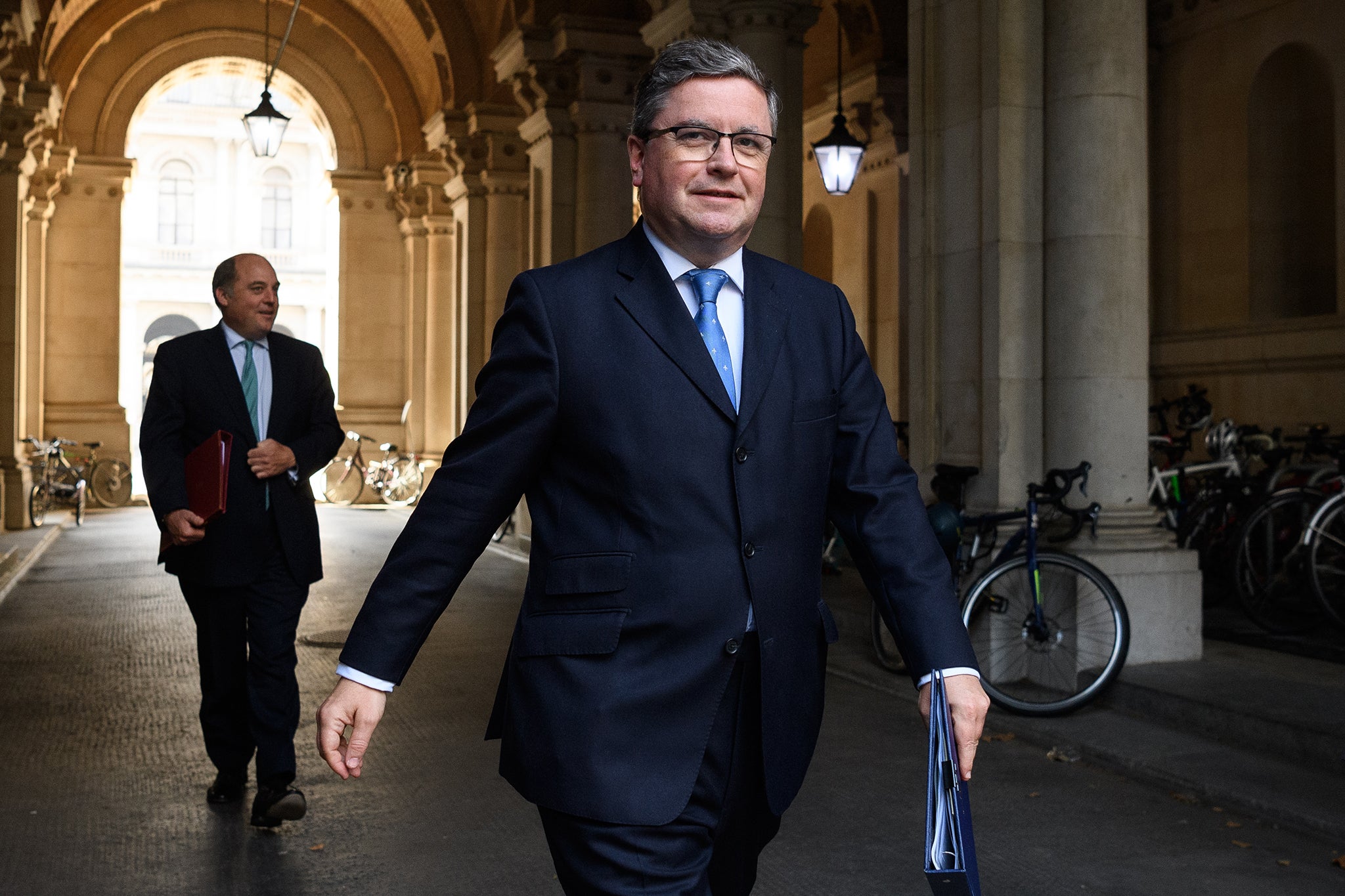Government’s sentencing plans could increase risk of prison riots, reoffending and radicalisation, according to its own report
Justice secretary Robert Buckland denies that policies aim to create ‘easy headlines’ on crime

Your support helps us to tell the story
From reproductive rights to climate change to Big Tech, The Independent is on the ground when the story is developing. Whether it's investigating the financials of Elon Musk's pro-Trump PAC or producing our latest documentary, 'The A Word', which shines a light on the American women fighting for reproductive rights, we know how important it is to parse out the facts from the messaging.
At such a critical moment in US history, we need reporters on the ground. Your donation allows us to keep sending journalists to speak to both sides of the story.
The Independent is trusted by Americans across the entire political spectrum. And unlike many other quality news outlets, we choose not to lock Americans out of our reporting and analysis with paywalls. We believe quality journalism should be available to everyone, paid for by those who can afford it.
Your support makes all the difference.Government plans to make serious offenders spend longer in prison could increase the risk of riots, reoffending and radicalisation, according to an official impact assessment.
Robert Buckland, the justice secretary, said a raft of proposals in the new sentencing white paper would reduce reoffending and protect the public.
“The first duty of any government is to keep the public safe from harm,” he said in a speech in London on Wednesday.
“It is a responsibility this government takes extremely seriously, and my department has been working on a range of measures to make the sentencing system work better to protect people and reduce crime.”
Mr Buckland denied that the policy aimed to create “easy headlines” and pledged to better address the root causes of crime.
But impact assessments by the Ministry of Justice warned that delaying the release of violent and sexual offenders from the halfway to two-thirds point of sentences, and allowing more whole-life orders, “may compound prison instability, self-harm, violence and overcrowding”.
They show that the combined effect of government changes is likely to see 2,400 inmates serving longer jail terms by 2028.
A document published on Wednesday said the resulting overcrowding would reduce access to rehabilitative courses and training, which have already been hit by coronavirus restrictions.
“Serving longer periods in custody may mean family breakdown is more likely, affecting prisoner mental health and subsequent reoffending risk,” it added. “A shorter licence period may inhibit reintegration into society.”
The white paper proposes powers to halt the automatic release of offenders who have become a terror threat while in prison, after a series of alleged attacks by serving and released inmates sparked alarm about radicalisation behind bars.
But the impact assessment said the change could “increase the risk that other prisoners could become radicalised or more dangerous due to the greater time in custody for the affected individual, affording more time for further proselytising in the prison population”.
A separate document also published on Wednesday, which examines the consequences of delaying the automatic release of serious offenders jailed for between four and seven years, said there was a “potential transitional risk to prison stability”.
It added: “Those prisoners sentenced under the [new] measure will serve longer in custody than other prisoners given an equivalent sentence prior to its introduction. This could lead to increased tensions in prison establishments, with consequent impacts on prisoner violence or self-harm.”
It said increased numbers could “impact upon the ratio of staff to offenders and the ability to provide a full regime of activities and time out of cell, a factor which is associated with increased levels of violence”, as well as poor rehabilitation.
A report released by the Public Accounts Select Committee last week warned that prisons in England and Wales could run out of space by 2023, because “staggering” government failings meant that new places were not being created fast enough.
Asked by The Independent how capacity would be addressed, Mr Buckland said “harsh lessons” had been learned from the report, adding: “I’m taking a very personal interest in the development of the 10,000 extra prison places.”
The justice secretary said the construction of new jails was progressing, and that the “prospects of delivery are frankly leagues better than they were”.
He argued that “with serious offenders being incarcerated, reoffending rates naturally are lower” and said other measures in the white paper aimed to address the causes of reoffending and improve the monitoring of released offenders.
Mr Buckland said: “This white paper, when you look at the whole thing, is a very end-to-end document rather than something that is just designed to get some easy headlines while ignoring the underlying causes and issues that still beset us.”
The broader Ministry of Justice impact assessment said the sentencing changes would result in “improved victim and public confidence and protection”, while reducing demand on the probation service and police because of shorter licence periods.
Frances Crook, chief executive of the Howard League for Penal Reform, said the proposals had not undergone “proper testing of the evidence” on what works to reduce reoffending.
“None of the proposals are likely to protect victims. Indeed, by pushing more men into prisons for longer, it is likely that more victims will be created.”
Peter Dawson, director of the Prison Reform Trust, accused ministers of “reheating the failed policies of so many previous governments”.
He added: “Sentencing has been getting tougher for three decades, with no impact on either crime or public confidence. All it guarantees is an overcrowded prison system that makes it harder for the people it holds to build a crime-free future.”
The white paper, which is the first step towards new sentencing laws being brought forward next year, proposes increasing powers to put offenders under curfew and expand GPS tagging to include released burglars, robbers and thieves.
It contains initiatives to divert low-level offenders with mental health and addiction problems away from prison and into treatment programmes.
The government wants to increase judges’ confidence in community sentences, which are an alternative to custody, after years of poor performance by outsourced companies.
“Problem-solving court models” will be piloted in up to five courts and will target repeat offenders.
Ministers also plan to reduce the time period during which people must declare past criminal offences to employers, in order to increase their chances of finding a job.



